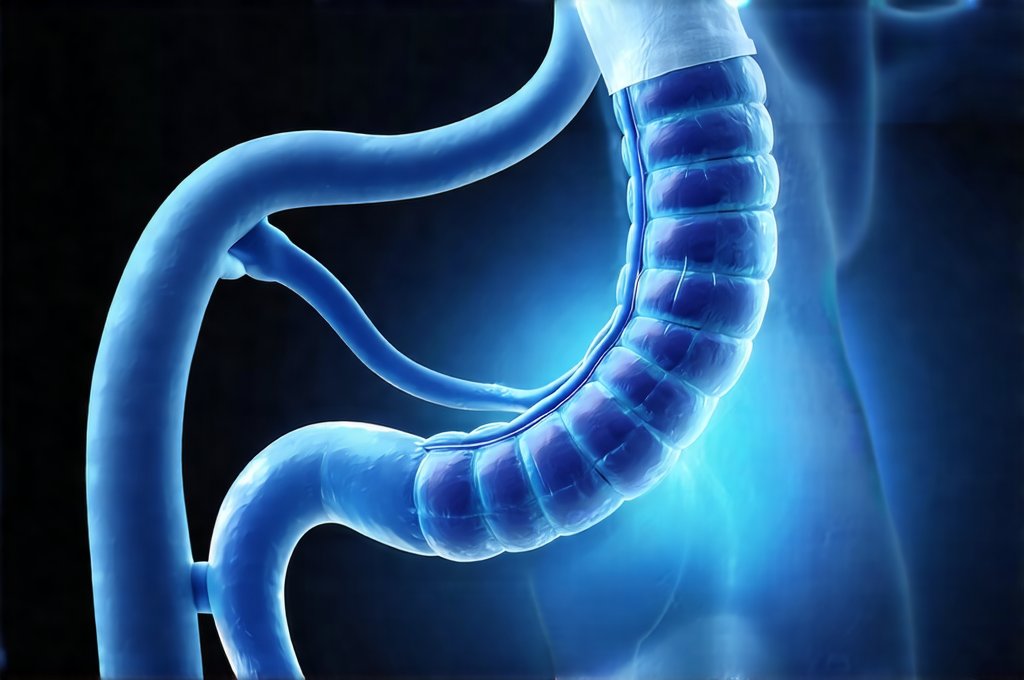The sensation of stomach gas, bloating, and discomfort is remarkably common, impacting individuals across all ages and demographics. Often dismissed as a simple consequence of diet or stress, the underlying mechanisms governing gas production and release are surprisingly complex, involving a delicate interplay between digestion, gut motility, and hormonal regulation. While dietary factors certainly play a significant role – certain foods naturally produce more gas during breakdown – understanding the hormonal drivers behind stomach function is crucial for appreciating how our bodies manage this everyday physiological process. This article will delve into the fascinating world of gastrin, exploring its multifaceted role in regulating not just gastric acid secretion, but also stomach emptying and ultimately, influencing the amount of gas present within the digestive system.
Beyond simply feeling uncomfortable, excessive or improperly managed gas can significantly impact quality of life, leading to social anxiety, disrupted sleep, and even chronic abdominal pain for some individuals. It’s important to recognize that gas itself isn’t inherently harmful; it’s a natural byproduct of digestion. However, the perception of gas, its quantity, and how efficiently it’s processed are all factors influenced by physiological processes that can be disrupted in various gastrointestinal conditions. Understanding these processes provides a foundation for appreciating the importance of hormonal regulation like that exerted by gastrin, and allows us to better contextualize strategies for managing digestive discomfort.
Gastrin: More Than Just Acid Production
Gastrin is a peptide hormone primarily produced by G cells located in the antrum of the stomach, as well as in the duodenum. It was first discovered in 1955 and initially understood solely for its potent ability to stimulate gastric acid secretion – a vital component of digestion. However, research over the decades has revealed that gastrin’s influence extends far beyond acidity, impacting various aspects of gastrointestinal function including stomach motility, pancreatic enzyme release, and even growth of the gastric mucosa. Gastrin is therefore central to maintaining overall digestive health. The hormone is released in response to several stimuli, most notably the presence of protein-rich foods, distension of the stomach wall (stretching), and certain nervous system signals.
The mechanism by which gastrin exerts its effects is relatively straightforward: after being secreted into the bloodstream, it travels to parietal cells in the stomach lining, binding to specific receptors on their surface. This binding triggers a cascade of events leading to the release of hydrochloric acid (HCl). Importantly, this process isn’t simply a one-way street. The acidity created by gastrin’s action then further stimulates gastrin release itself, creating a positive feedback loop that ensures adequate digestion occurs. However, this feedback is carefully regulated to prevent excessive acid production; other mechanisms, such as somatostatin secretion, act as inhibitory signals.
Beyond its direct impact on parietal cells, gastrin also influences the enteroendocrine cells of the duodenum, stimulating the release of cholecystokinin (CCK) and secretin – hormones that regulate pancreatic enzyme secretion and bile flow respectively. This coordinated hormonal response is essential for efficient digestion and absorption of nutrients. The relationship between gastrin and these other digestive hormones highlights its role as a key regulator within the broader gastrointestinal ecosystem, impacting gas production indirectly through its effect on overall digestive efficiency. Role of the pancreas is also crucial for this process.
Gastric Emptying and Its Impact on Gas Levels
Gastric emptying – the rate at which food passes from the stomach into the small intestine – is profoundly influenced by gastrin. While it might seem counterintuitive, slower gastric emptying can actually contribute to increased gas production. This is because a slower transit time provides more opportunity for bacterial fermentation in the stomach and upper small intestine. Bacteria thrive on undigested carbohydrates and proteins, breaking them down into gases like hydrogen, carbon dioxide, and methane – all contributors to bloating and flatulence. Gastrin, by slowing gastric emptying (and promoting mixing), can inadvertently create a more favorable environment for this bacterial activity.
The reasons gastrin slows emptying are complex but relate to its influence on the migrating motor complex (MMC). The MMC is a series of peristaltic waves that sweep through the digestive tract between meals, clearing out any remaining food particles and bacteria. Gastrin inhibits the MMC, effectively delaying the clearance process and potentially increasing bacterial load. This is particularly relevant with high-protein meals because they strongly stimulate gastrin release. Understanding this interplay – gastrin slowing emptying, allowing fermentation, and ultimately impacting gas levels – is vital for managing digestive discomfort. Digestive enzymes can assist in breaking down food more efficiently.
Furthermore, the composition of a meal can significantly impact how gastrin affects gastric emptying. High-fat meals also slow down emptying, but in this case, it’s primarily mediated by CCK rather than gastrin. However, combining high-fat and high-protein foods amplifies the slowing effect, further exacerbating potential gas production due to extended fermentation time. This explains why some individuals experience more bloating after certain types of meals.
The Role of Gastrin in Specific Gastrointestinal Conditions
Gastrin levels are frequently altered in various gastrointestinal disorders, often playing a crucial role in symptom presentation. In conditions like Zollinger-Ellison syndrome (ZES), tumors cause excessive gastrin secretion leading to extreme acid production and peptic ulcers. While the primary concern is ulcer formation, the hyperstimulation of gastric activity also contributes to significant bloating and gas as the stomach struggles to process the increased volume and acidity. Conversely, in atrophic gastritis – a condition where the stomach lining deteriorates – gastrin levels can be elevated due to reduced feedback inhibition from acid production; the body attempts to compensate for diminished acidity by releasing more gastrin, but this doesn’t necessarily restore normal digestive function. The role of hydration is also important in these conditions.
Irritable Bowel Syndrome (IBS), although not directly caused by gastrin imbalance, often exhibits altered gastric motility and sensitivity which can indirectly link to gastrin levels. Patients with IBS frequently report bloating and gas as prominent symptoms. While the exact mechanisms are still being investigated, it’s believed that changes in gut microbiota composition and visceral hypersensitivity play a role – both of which could be influenced by gastrin’s effects on gastric emptying and digestion. Therefore, addressing underlying issues related to motility and microbial balance may indirectly impact gas production. FODMAPs can also play a role in IBS symptoms.
Finally, Helicobacter pylori infection can also influence gastrin secretion. The bacteria colonizes the stomach lining, leading to chronic inflammation and changes in acid production. This often results in a complex interplay between gastrin levels, bacterial load, and gastric emptying, contributing to symptoms of bloating, discomfort, and altered digestion. It’s important to note that treatment for H. pylori infection can sometimes normalize gastrin levels and improve digestive function, but the effects are highly individualistic. Physical activity can reduce gas.
It’s essential to remember that self-diagnosing or attempting to manage gastrointestinal issues without professional guidance is not recommended. If you experience persistent bloating, gas, or abdominal discomfort, consulting a healthcare provider for proper evaluation and personalized recommendations is crucial. Role of the pancreas can also affect digestion.


















